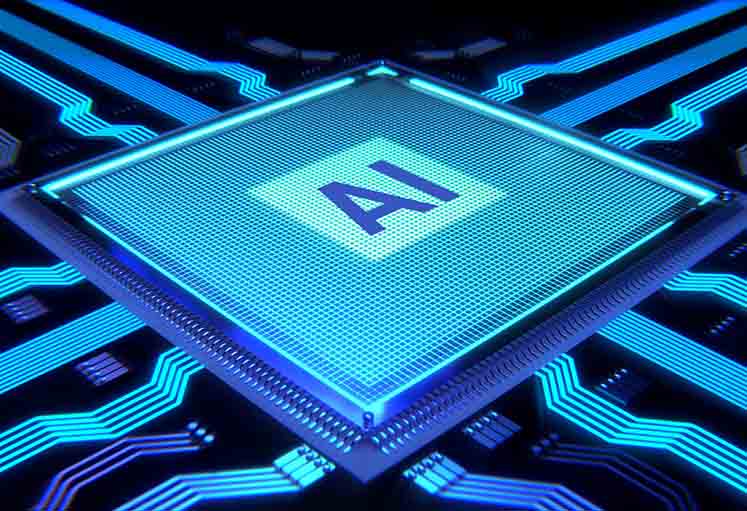Artificial intelligence (AI) has moved from the realm of science fiction to an integral part of our everyday lives. It’s no longer just about robots or high-tech gadgets. AI influences everything from how we shop online to the way doctors diagnose diseases. But what does the future hold? Buckle up, because the journey into the future impact of artificial intelligence promises to be nothing short of revolutionary!
The Dawn of a New Era

What is Artificial Intelligence?
Before diving into the future, let’s get our heads around what AI actually is. In a nutshell, AI refers to the simulation of human intelligence in machines designed to think and learn like humans. These machines can perform tasks such as problem-solving, understanding languages, recognizing patterns, and even making decisions.
Find more on www.ezrankings.com
The Current State of AI
AI is already deeply embedded in our daily routines. Consider the voice-activated assistants on our smartphones, the recommendation algorithms of streaming services, or the chatbots that handle customer service inquiries. These are just the tip of the iceberg.
From Assistance to Autonomy
As AI continues to evolve, we’re moving from assisted intelligence to autonomous intelligence. This transition signifies a shift where machines not only assist humans but can also operate independently, making decisions and learning from their experiences.
Transforming Industries
Healthcare Revolution
AI’s impact on healthcare is profound and far-reaching. Imagine a world where diseases are diagnosed early through predictive analytics, or where personalized treatment plans are crafted with pinpoint accuracy.
Diagnostic Tools
AI-powered diagnostic tools can analyze medical images faster and more accurately than human doctors. This means quicker diagnoses and, potentially, better patient outcomes.
Personalized Medicine
By analyzing vast amounts of data, AI can identify patterns and suggest personalized treatments. This approach ensures that patients receive the most effective treatments based on their unique genetic makeup and medical history.
Education Reimagined
The classroom of the future will look very different, thanks to AI.
Adaptive Learning Systems
AI can tailor educational content to the needs of each student, ensuring a personalized learning experience. These adaptive learning systems can identify strengths and weaknesses, offering targeted support where needed.
Virtual Tutors
Imagine having a virtual tutor available 24/7, ready to help with any subject. AI-powered tutors can provide instant feedback and support, making education more accessible and effective.
The Business Landscape
AI is reshaping the business world in numerous ways.
Automation and Efficiency
From automating routine tasks to optimizing supply chains, AI helps businesses operate more efficiently. This not only saves time and money but also allows employees to focus on more strategic tasks.
Data-Driven Decisions
With AI, businesses can make better decisions by analyzing large datasets and identifying trends. This predictive capability can lead to more effective strategies and improved outcomes.
Everyday Life: A New Normal
Smart Homes
AI is turning our homes into intelligent living spaces. Smart home devices can learn our habits, making our lives more convenient and efficient.
Energy Management
AI can optimize energy usage, reducing costs and our carbon footprint. For example, smart thermostats learn your schedule and adjust temperatures accordingly, ensuring comfort and efficiency.
Home Security
AI-powered security systems can recognize faces, detect unusual activity, and even alert authorities if necessary. This adds a new layer of protection and peace of mind.
Transportation Transformation
The way we get from point A to point B is set to change dramatically.
Autonomous Vehicles
Self-driving cars are no longer a distant dream. These vehicles have the potential to reduce accidents, ease traffic congestion, and provide mobility for those unable to drive.
Smart Traffic Management
AI can optimize traffic flow, reducing travel times and emissions. By analyzing traffic patterns, AI systems can make real-time adjustments to traffic signals and suggest alternative routes.
Ethical Considerations and Challenges

Privacy Concerns
With AI’s ability to collect and analyze vast amounts of data, privacy is a significant concern. How do we ensure that our personal information is protected?
Job Displacement
While AI will create new opportunities, it will also render some jobs obsolete. How do we prepare the workforce for these changes?
Bias and Fairness
AI systems are only as good as the data they are trained on. Ensuring that these systems are fair and unbiased is crucial.
Accountability
Who is responsible when an AI system makes a mistake? Establishing clear lines of accountability is essential as we integrate AI more deeply into society.
FAQs
How Will AI Impact Jobs?
AI will both create and displace jobs. While some roles may become obsolete, new opportunities will emerge, particularly in AI development, maintenance, and ethical oversight.
Can AI Be Trusted?
Trust in AI depends on its design and implementation. Ensuring transparency, fairness, and accountability is key to building trust.
What Are the Benefits of AI in Healthcare?
AI can improve diagnostic accuracy, personalize treatments, and streamline administrative tasks, leading to better patient outcomes and more efficient healthcare systems.
How Can We Mitigate the Risks of AI?
By implementing robust ethical guidelines, ensuring transparency, and investing in education and retraining programs, we can mitigate the risks associated with AI.
Conclusion
The future impact of artificial intelligence is vast and varied. From transforming industries to reshaping our everyday lives, AI holds immense promise. However, it also presents significant challenges that must be addressed. As we move forward, it’s crucial to balance innovation with ethical considerations, ensuring that the future of AI benefits everyone. Embrace the future, and let’s shape it together!

